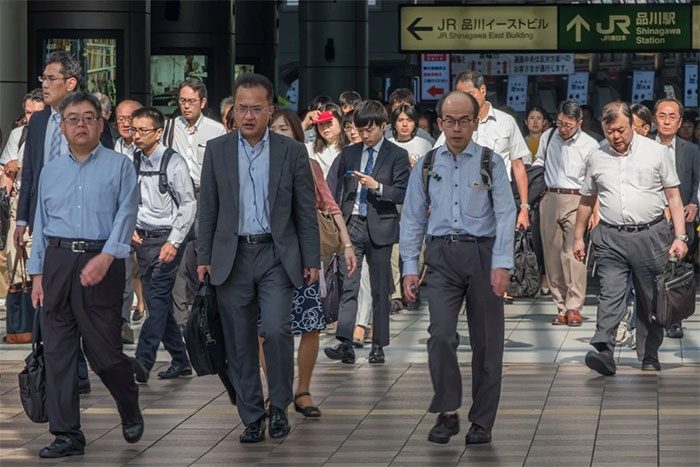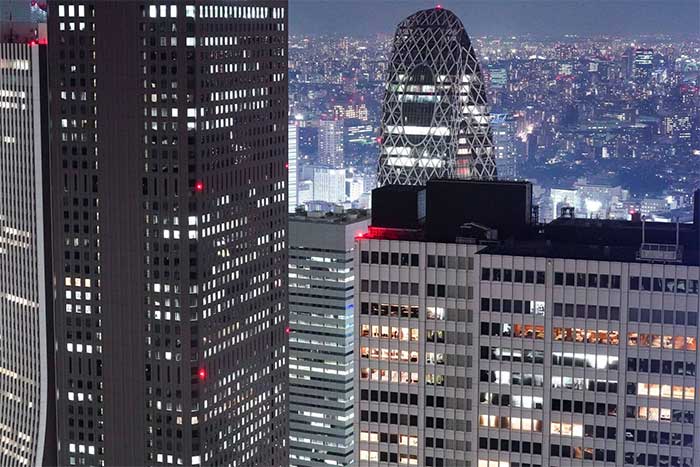The white paper from Japan’s Ministry of Health highlights the connection between long working hours and conditions such as depression and karoshi, which refers to death from overwork.
As Kei Sato (name changed for privacy) was lifted onto a stretcher and loaded into an ambulance heading to the hospital, his feeling was simply… relief. After more than a year of working the equivalent of three people’s worth, his body had finally “rebelled.”
“I remember it very clearly,” Sato recounted. “I had just finished a presentation and suddenly felt fatigued. I had previously suffered from kidney stones, and at first, I thought it was just a recurrence of that condition. But the situation quickly worsened, and I had to call for an ambulance.”
He underwent immediate kidney surgery and was informed he would need to stay in the hospital for at least 10 days.
Sato stated: “I can confirm that my health issues were caused by work-related stress. My superiors assigned me too many tasks, and there were no staff to support me; it was truly a nightmare.”
Sato often arrived at the office before 8 AM and stayed until 11 PM.

A crowd of office workers in Japan at a train station in Tokyo.
Sato’s story is not unusual in Japan. On October 13, the country’s Ministry of Health released its annual white paper on excessive working hours and their connection to depression and karoshi (or death from overwork).
A total of 2,968 people in Japan died by suicide due to karoshi last year (compared to 1,935 cases in 2021).
The white paper links karoshi to the number of working hours. Among the findings, 10.1% of men work at least 60 hours a week, and 4.2% of women do the same.
Karoshi can occur due to poor health. In 2022, 803 individuals applied for government compensation due to brain or heart illnesses caused by work-related stress. This figure increased from 753 cases in 2021 and peaked at 938 cases in 2000.
Experts believe that the reported cases to health authorities may only represent a small fraction of the actual numbers. They express concern over the sudden spike in suicide cases in 2022, which unexpectedly reversed a decade-long decline in suicides attributed to work pressure.

Office buildings still lit at night in Tokyo.
Men in their 40s and women in their 20s are the most pressured by work. Approximately 13.2% of men in their 40s and 4.9% of women in their 20s work at least 60 hours a week.
This number is even higher among freelancers, with 15.4% of men and 7.8% of women working at least 60 hours.
The research also found a correlation between working hours and depression. 26.8% of men and women working more than 60 hours a week believe they are suffering from some form of depression or anxiety.
Bill Cleary, clinical director of the Tokyo-based TELL Lifeline counseling organization, admits to feeling somewhat “helpless” regarding the reality that authorities, companies, and individuals have recognized the serious issues since the mid-1980s but have yet to implement effective solutions.
He stated: “I feel that the Covid-19 pandemic has also played a role, as people became socially isolated and less able to forge friendships and relationships.”
“Many studies clearly show that social interactions help improve conditions like high blood pressure or heart disease. If we are simultaneously isolated and under increased work pressure, it is understandable that the number of karoshi cases would rise,” he added.
Bill suggests that the impact of the Covid-19 pandemic stems from the Japanese attitude of “zero tolerance” towards work.
Makoto Watanabe, a communications professor at Hokkaido Bunkyo University in Eniwa, noted that there has been too little change in workplaces in Japan, with many companies still stuck in the “bubble era” of the 1980s.
“I come from the ‘ice age’ generation, those who dove headfirst into job hunting in the early 1980s right after the economic bubble burst and everything turned bleak,” he said.
He added: “Our superiors benefited from rapid economic growth in the 1970s and 1980s and are reluctant to change anything. However, salaries remain the same, and the number of employees has decreased, so everyone has to work harder and longer.”
More than 30 years after the Japanese economic bubble burst in the early 1980s, Bill believes that Japanese workers need to find balance and preserve their mental health.
He remarked: “My message is for everyone to look inward to decide what is within their control.”
He recommends avoiding all the bad news on social media, exercising regularly, trying to get good sleep, and talking with friends and family.
He said: “We must change everything to have hope; otherwise, things may descend into despair.”



















































